How do you design an office for robots?
If a company replaces humans with robots, what do their offices look like? That’s what I wondered when I visited the new London headquarters of XTX Markets, a top trading firm that doesn’t have human traders. The company just moved into the space in King’s Cross, an area that will also be home to Google’s massive “landscraper.”
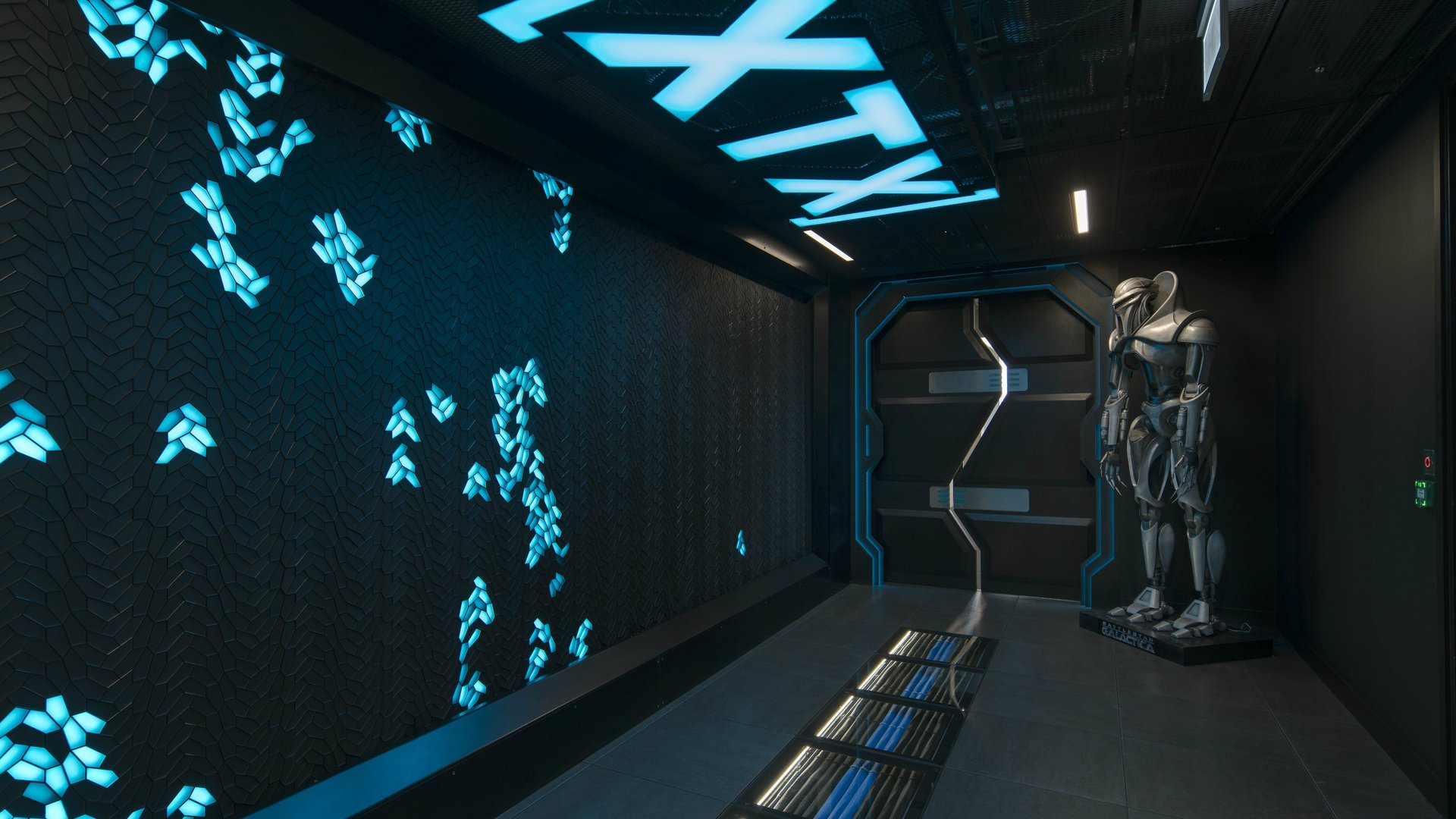

If a company replaces humans with robots, what do their offices look like? That’s what I wondered when I visited the new London headquarters of XTX Markets, a top trading firm that doesn’t have human traders. The company just moved into the space in King’s Cross, an area that will also be home to Google’s massive “landscraper.”
XTX’s office is, among other things, a temple to the gods of math. I should have seen that coming—XTX’s name refers to the linear regression formula used in its trading strategy. The enterprise was founded by Alex Gerko, a sci-fi fan with a PhD in mathematics from Moscow University. Co-CEO Zar Amrolia has a PhD in mathematics from Oxford.
The firm’s computers trade assets electronically on exchanges around the world, the type of buying and selling known as market making that used to be done by people, usually men, shouting at each other over the phone or across a trading floor. Computers took over, however, and now most transactions are handled by machines. With only 101 employees, XTX has become one of the world’s top traders in European and Asian stocks, as well as currency and derivatives markets globally.
The company’s execs started thinking about the new office in 2015, the year XTX was spun out from hedge fund GSA Capital. XTX wanted its new headquarters to have industrial, tech, space exploration, and science-fiction elements while still being the kind of place employees would want to bring their families, said Sonia Crozier, a designer at Peldon Rose.
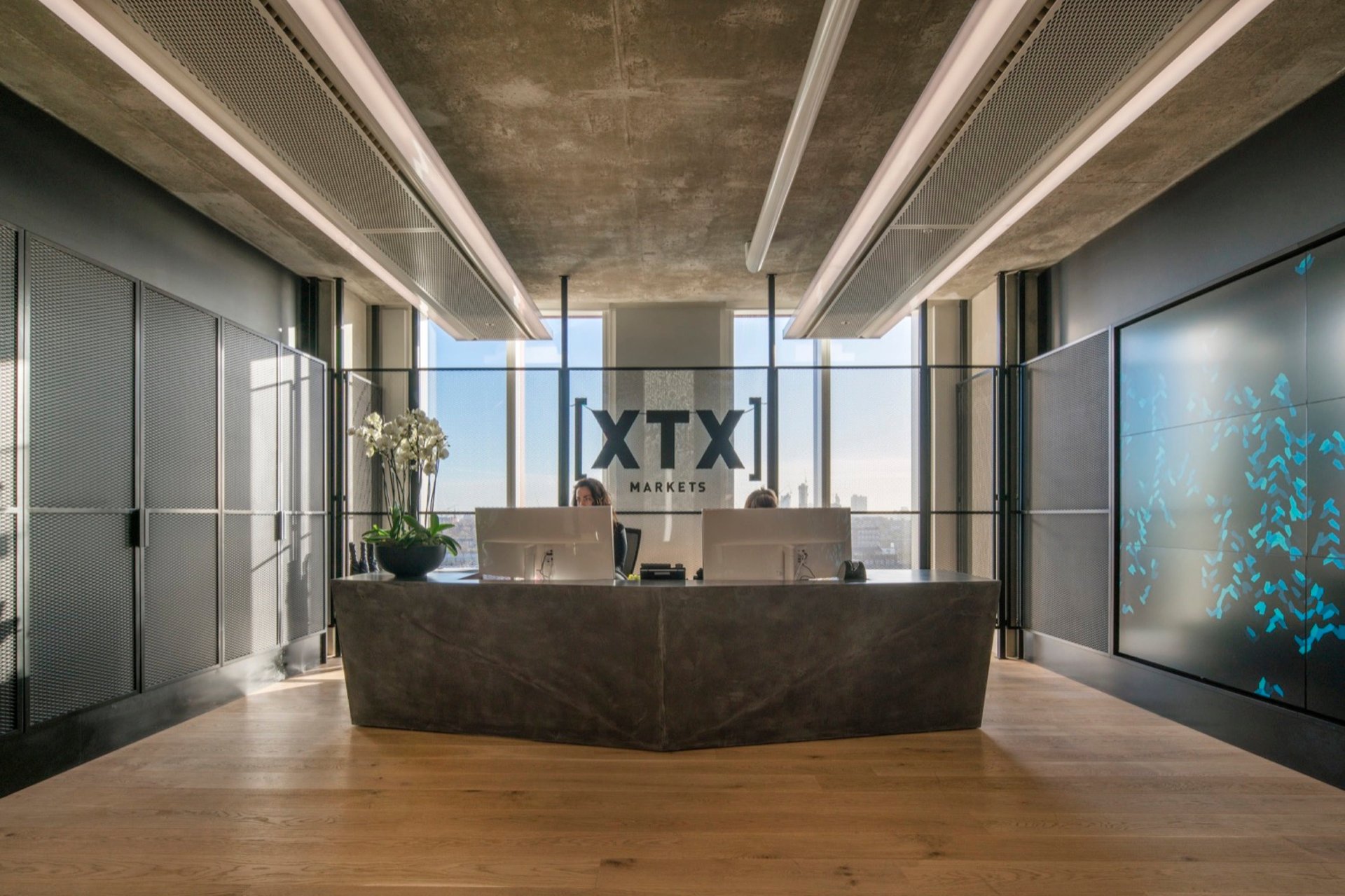
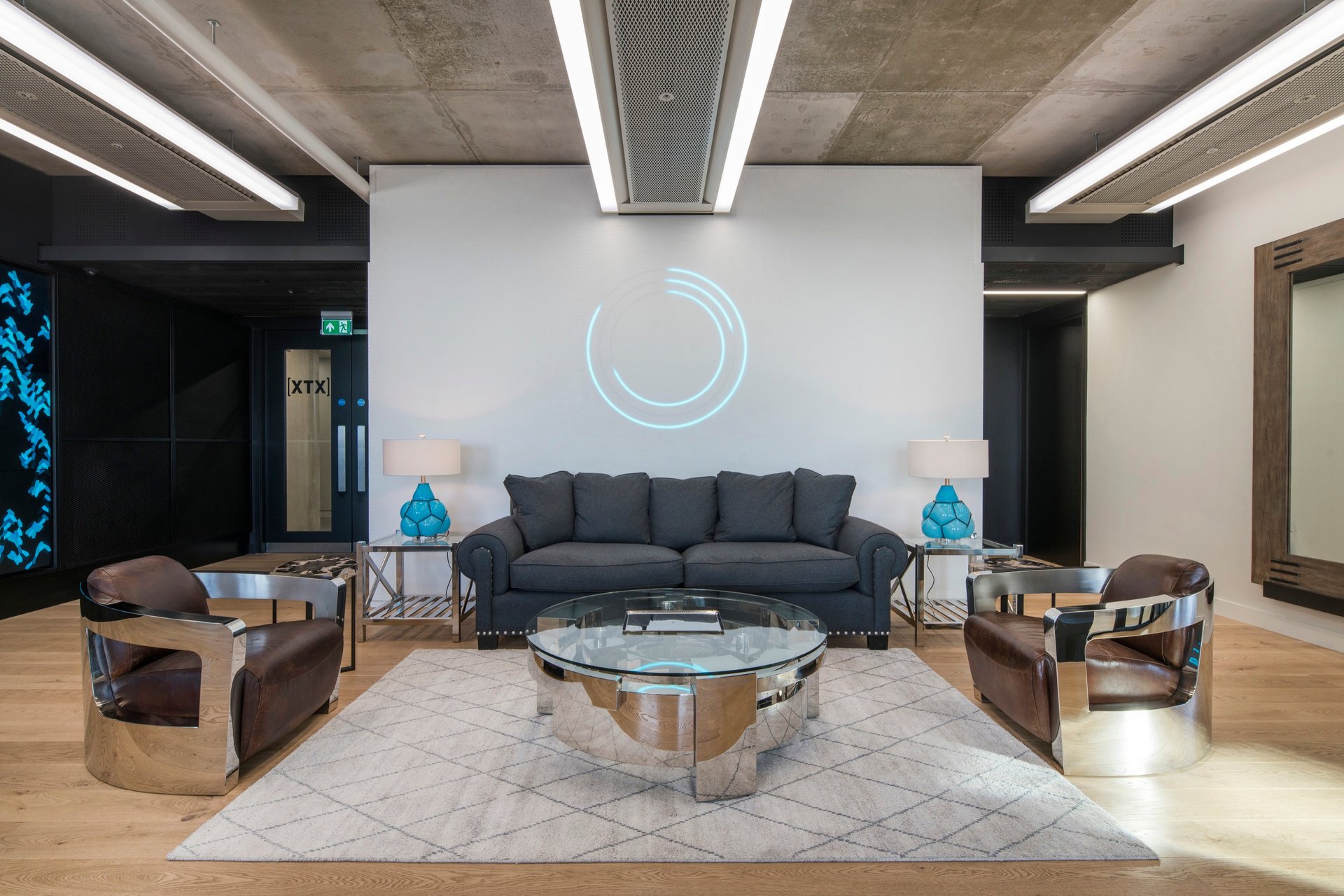
For inspiration, Crozier said she watched the steampunk space western series Firefly. Crozier also looked for ideas from the movie Tron (2010 version), where a hacker is sucked into a computer and forced to play gladiatorial games for survival, and Battlestar Galactica, in which a highly advanced cybernetic species is at war with humanity.
You can see where this is going. Since computers and algorithms are among the company’s stars, rather than hiding servers in a closet somewhere, they’re bathed in blue light in the middle of the main office floor. Likewise, the motherboard for the company’s first computer is on a pedestal in one of the firm’s meeting rooms. While the meeting rooms are grown up enough for pitching buttoned-down financial types, parts of the office could double as a set for an X-Men film.

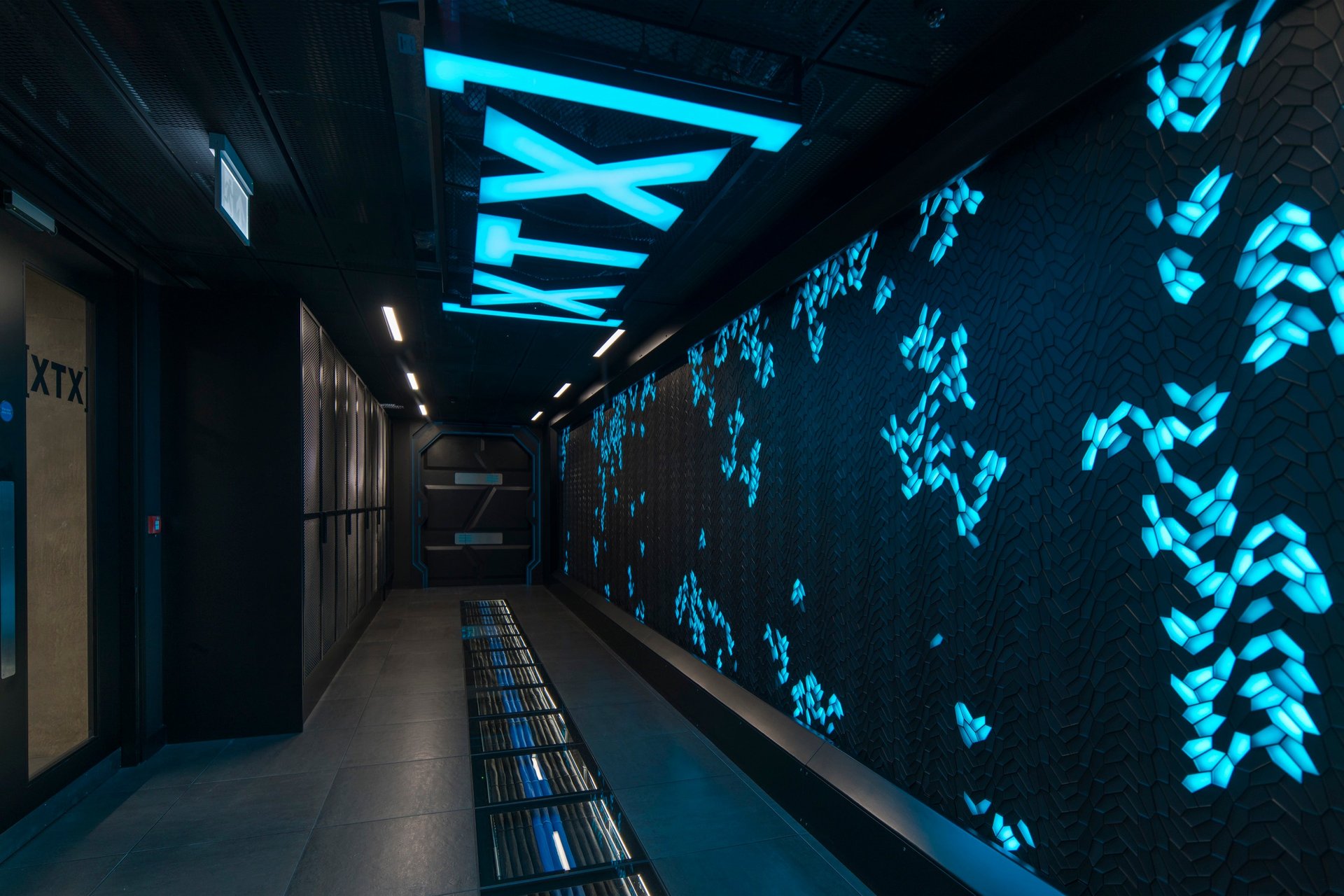
Robots haven’t actually taken over the world—yet—but sometimes it seems like mathematicians and technologists have. At XTX, a hallway is animated with 30,132 LEDs that show patterns based on British mathematician John Conway’s “Game of Life.” The animation uses a pentagonal shape, the 15th monohedral tiling convex pentagon, that mathematicians only discovered in 2015. The reception contains more than 4,000 hand-placed pentagons that took 500 hours of work.
“It’s the most unique office I’ve worked on,” Crozier said.
Naturally, XTX, which also has offices in New York and Singapore, isn’t the only high-tech company with a swish home. Lobbies have become an important recruiting tool. Startups these days compete to have the best offices, which serve as a kind of advertising, said Brad Sherman, a partner at New York-based design firm Float. “Everybody wants to be the cool kid,” he said.
Blending in with the cool kids for firms like XTX makes business sense. Financial companies have to convince technologists that their companies are a better place to work than Google or Facebook. They’re also competing for talent against hip startups that want to change the world. Last year, JPMorgan hired a top expert in natural language processing who had spent much of his career at Microsoft, but he was poached by Facebook not long after, according to eFinancialCareers.
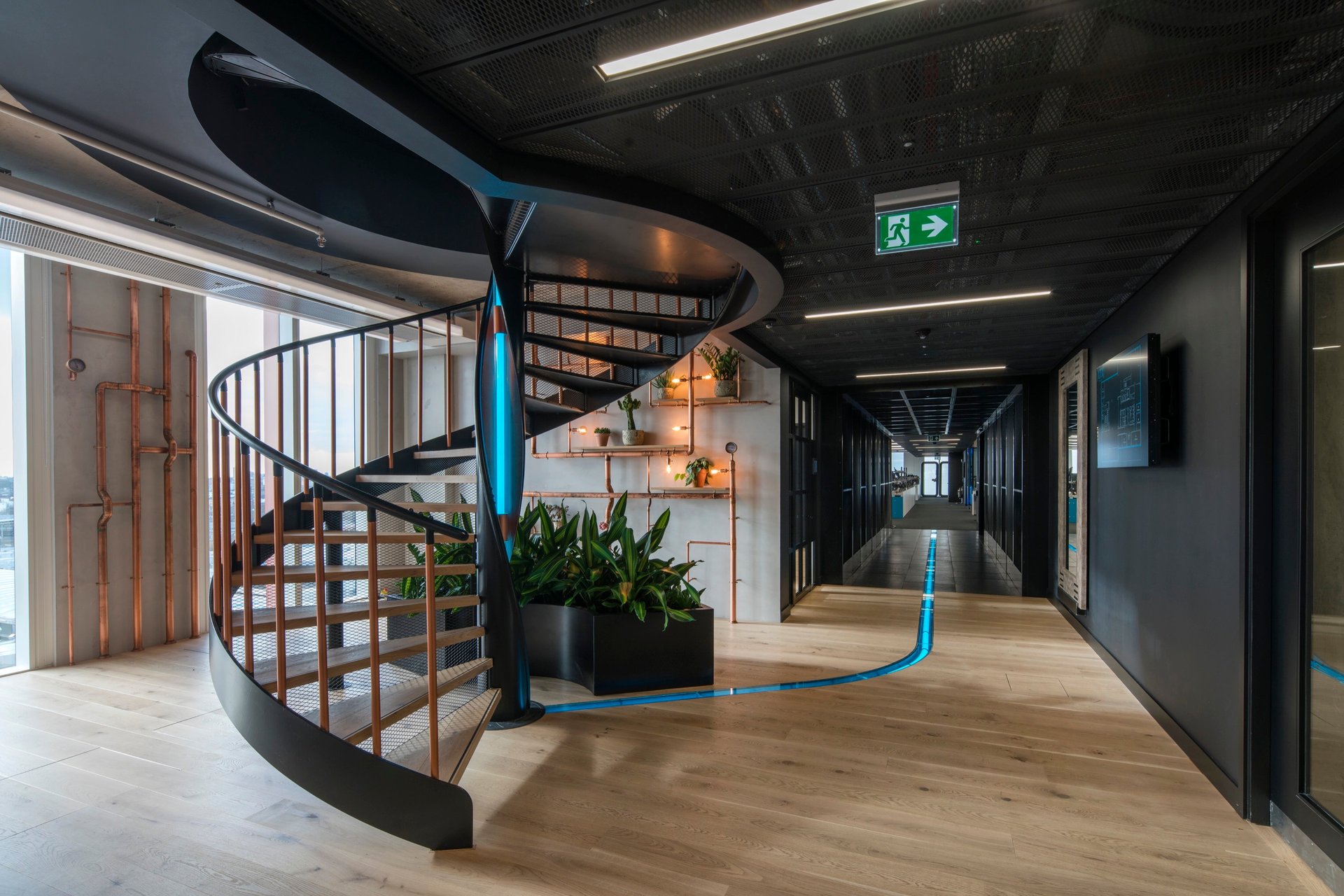
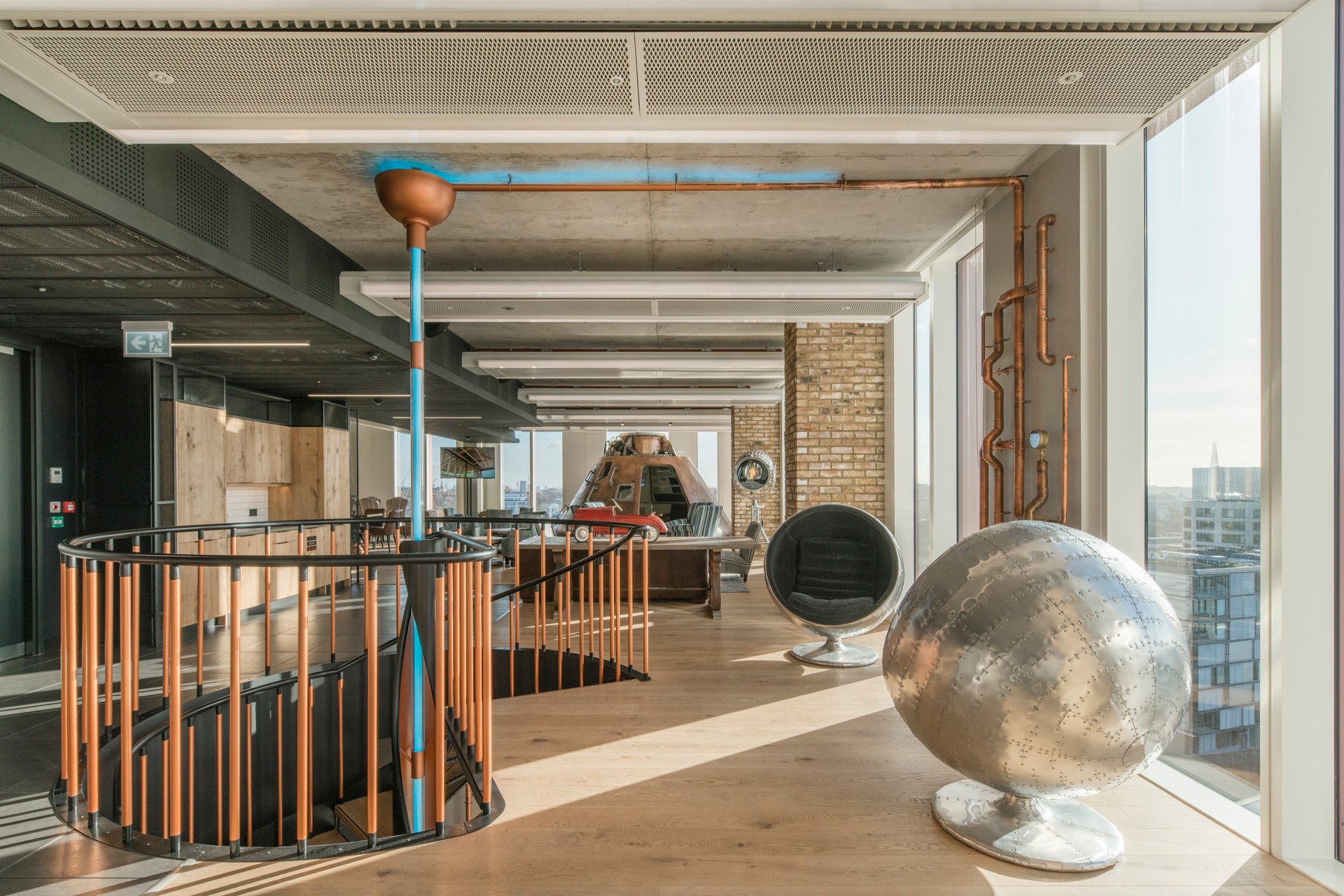
To set itself apart, XTX put a few miles between itself and London’s traditional financial districts. In the British capital, banks are usually based in the City’s Square Mile or the skyscrapers in Canary Wharf. Hedge funds are clustered in Mayfair, where XTX originated. For its new office, XTX took three levels of the 10-story R7 building, where Google will have offices for its DeepMind artificial intelligence operations. Facebook is also reportedly in talks for nearby real estate.
The area is a hub for tech companies, though it used to be better known for other kinds of commerce. In the 1980s, it was better known for drugs and prostitution. Now, it has the terminal for the Eurostar train that passes through the Channel Tunnel to Paris, Brussels, and beyond. There’s an art and design college nearby, as well as a floristry school.
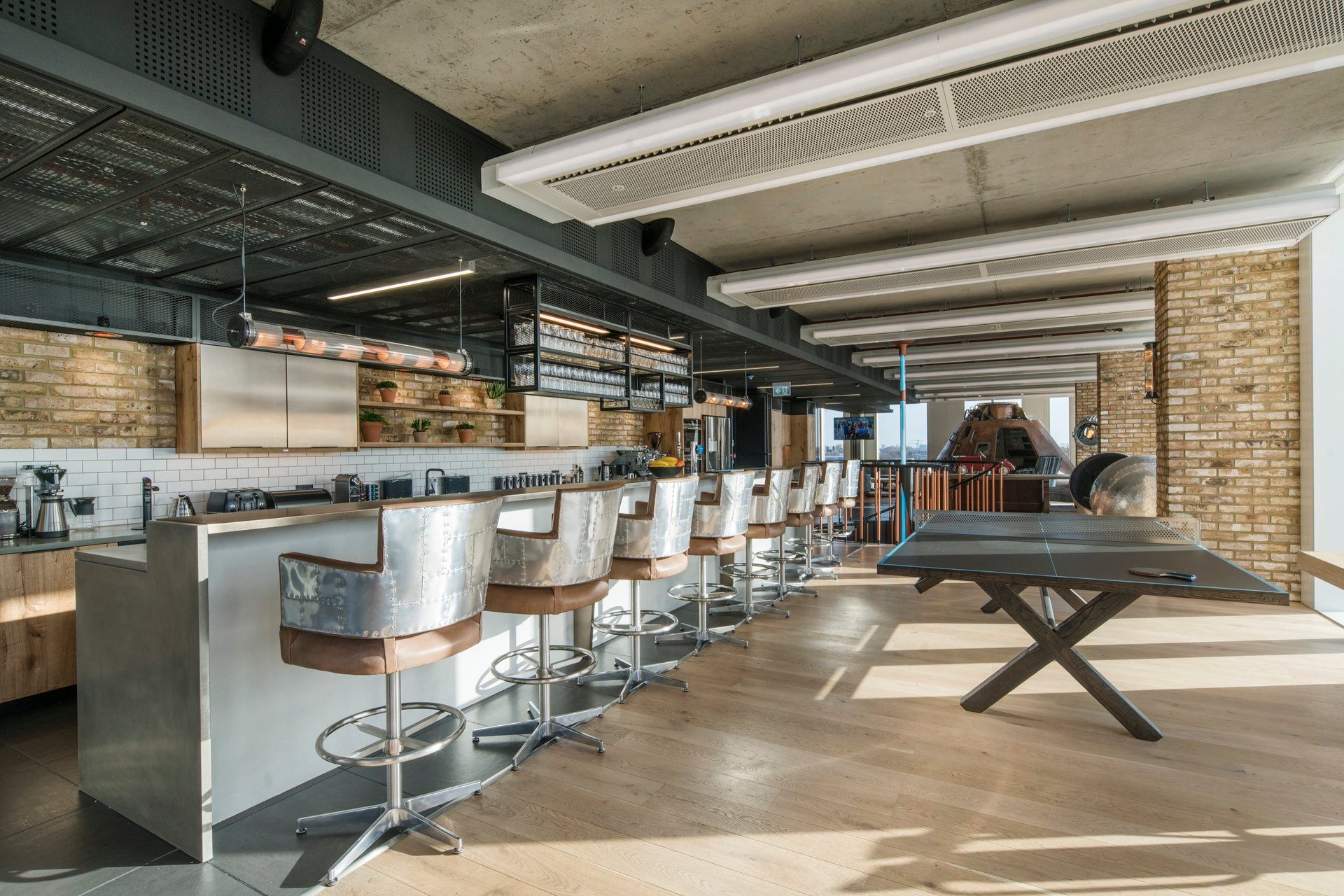
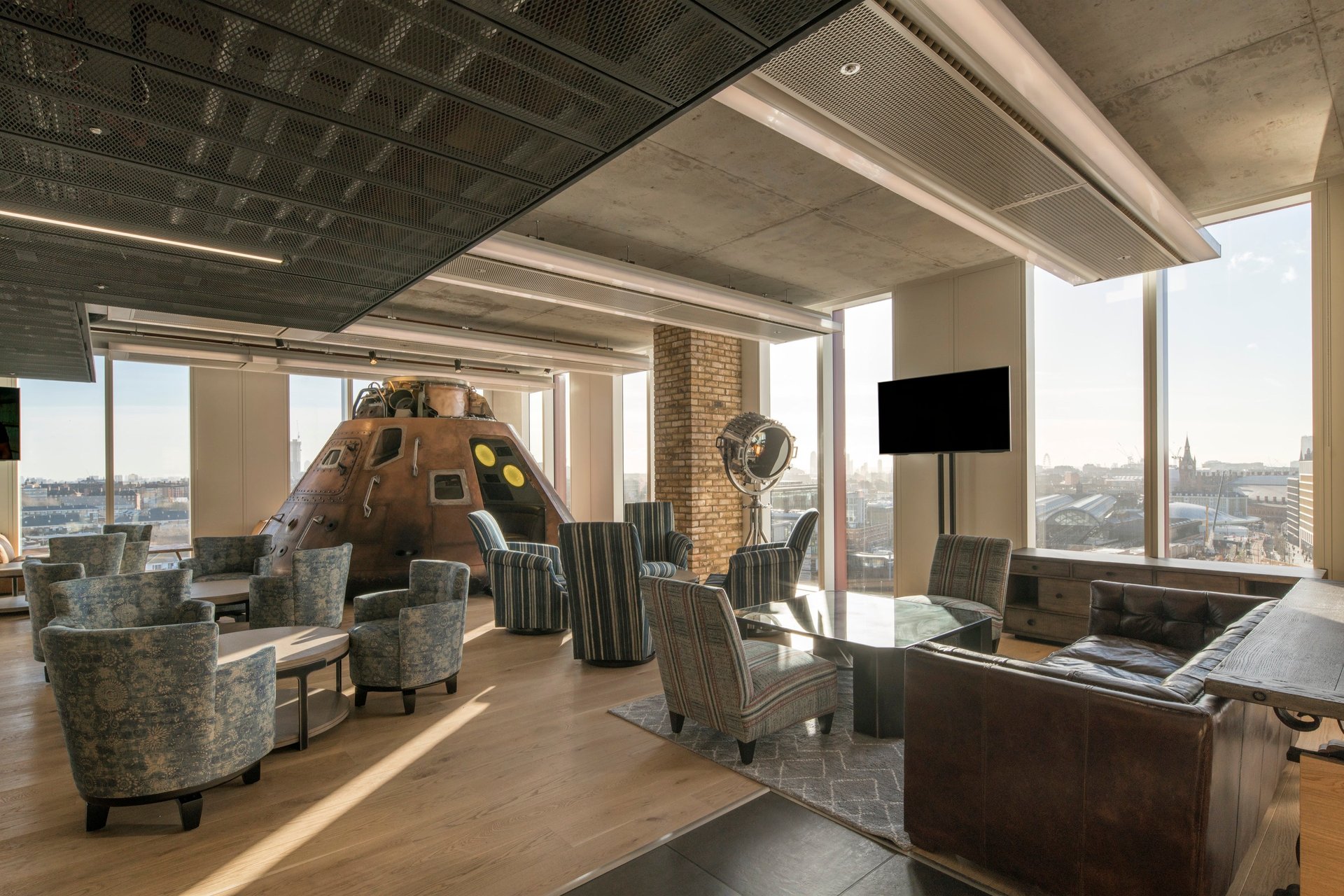
“King’s Cross is being reborn,” said Tom Hitch, senior marketing executive at Peldon Rose. “This was a barren landscape people didn’t want to live in. There’s a social buzz about it now.”
As for XTX, even with sci-fi touches like the Battlestar Galactica cylon in the “airlock chamber,” the offices are surprisingly comfortable. (You can see more in the company’s video here.) The firm’s restaurant—complete with a replica Apollo 11 landing capsule—doesn’t feel like a corporate canteen. Employees get massages and bi-weekly doctor visits. Besides the bar, library, and gym, XTX’s offices also have sleeping quarters. Will-writing and accountancy services are gratis. It’s all quite human.
“I used to be over the moon at free hot chocolate,” said XTX chief operating office Michael Irwin. “The world doesn’t work that way now.”
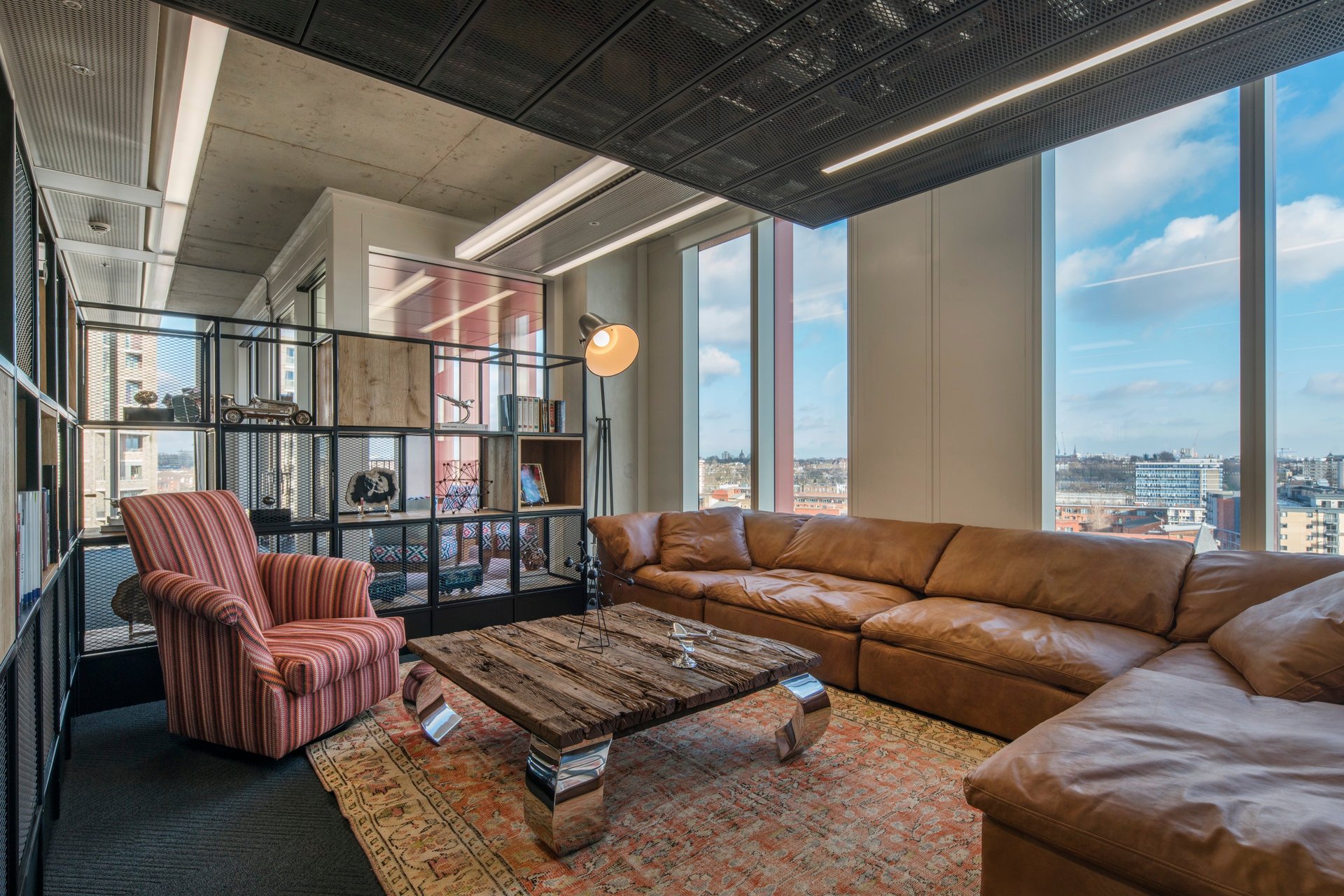

(With reporting assistance from Anne Quito.)